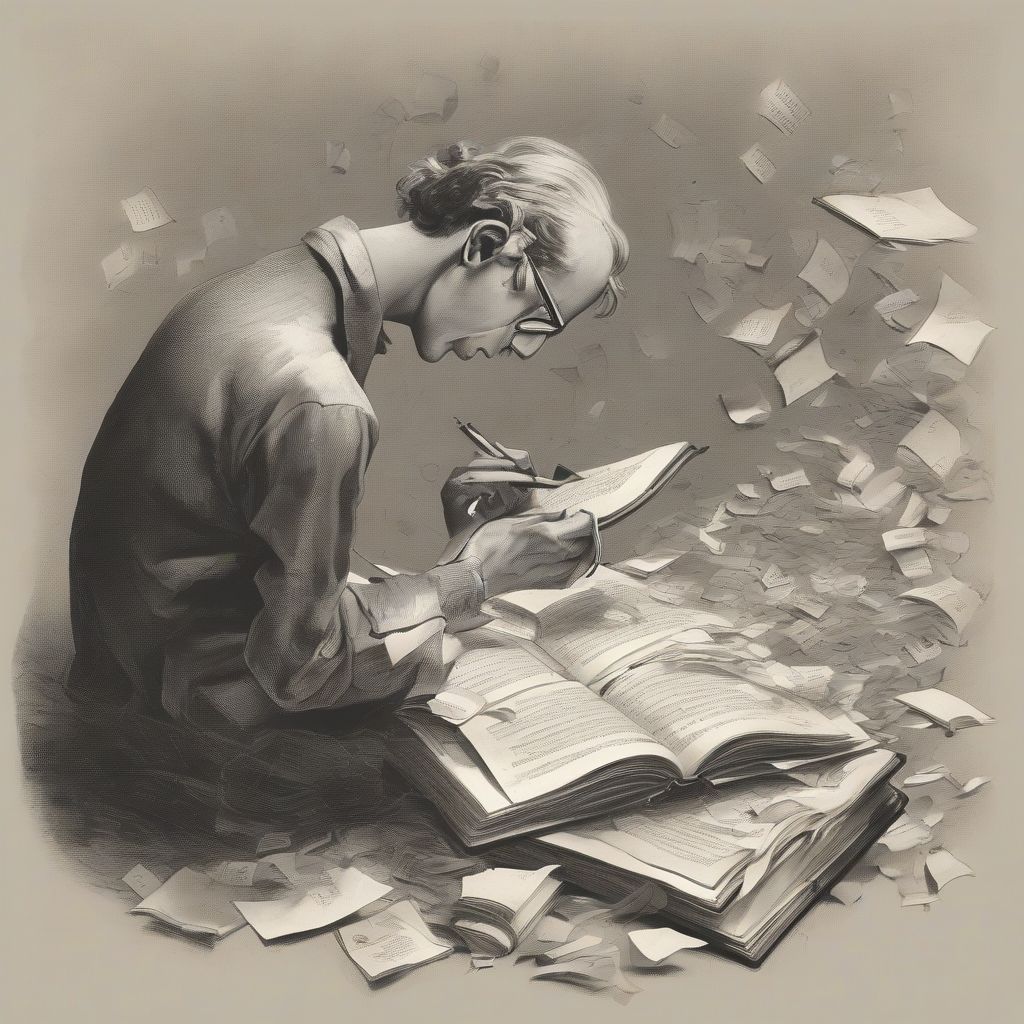Have you ever been captivated by a book, utterly lost in the author’s words, and wondered, “How do they do that?” Every writer possesses a unique fingerprint, a distinct writing style that sets them apart. Analyzing these styles can be a rewarding journey, offering a glimpse into the minds of literary masters and enriching your own writing process.
Identifying the Building Blocks: Elements of Writing Style
Before embarking on our exploration, let’s first define the key elements that contribute to an author’s unique voice:
1. Language & Diction: The words an author chooses are fundamental. Is their language formal or informal? Simple or complex? Do they favor specific literary devices like metaphors or similes?
2. Sentence Structure: Pay close attention to the length and rhythm of their sentences. Are they short and impactful, or long and winding? Do they use varied sentence structures to create emphasis or rhythm?
3. Point of View: Who is telling the story? Is it a first-person narrator, an omniscient observer, or a shifting perspective? The chosen point of view drastically impacts how the story unfolds and connects with the reader.
4. Tone & Voice: Tone reflects the author’s attitude towards the subject matter. Is it humorous, serious, satirical, or nostalgic? Voice, on the other hand, is the author’s personality shining through their words, making their writing distinct and recognizable.
5. Imagery & Sensory Details: How does the author paint pictures with words? Do they appeal to the senses, using vivid descriptions to immerse the reader in the scene?
 Analyzing Writing Style
Analyzing Writing Style
Deconstructing the Masters: Putting Analysis into Practice
Let’s take a look at how to analyze the writing style of a renowned author, using Ernest Hemingway as an example:
1. Choose a Passage: Select a representative passage from the author’s work.
2. Examine the Language: Hemingway is renowned for his concise, direct prose. He uses simple, everyday language, avoiding overly complex vocabulary.
Example: “The old man was thin and gaunt with deep wrinkles in the back of his neck.” (The Old Man and the Sea)
3. Analyze the Sentence Structure: Hemingway often employs short, declarative sentences, creating a sense of simplicity and directness.
4. Identify the Tone: In “The Old Man and the Sea,” Hemingway’s tone is often stoic, reflective, and imbued with a sense of resilience in the face of adversity.
5. Consider the Overall Effect: Hemingway’s stripped-down style, devoid of unnecessary embellishment, creates a powerful and evocative reading experience.
Deepening Your Understanding: Tips for Effective Analysis
1. Read Widely and Critically: Immerse yourself in the works of authors you admire. As you read, pay attention to the elements we’ve discussed and take notes.
2. Look for Patterns: Authors often have recurring themes, stylistic choices, and even favorite words. Identifying these patterns helps you understand their unique voice.
3. Consider the Historical Context: An author’s writing is often influenced by the time period in which they lived. Researching the historical and social context can provide valuable insights.
4. Seek Out Literary Criticism: Explore essays and critical analyses of the author’s work. Literary critics often offer insightful interpretations and shed light on stylistic nuances.
5. Practice, Practice, Practice: The more you analyze writing, the more adept you’ll become at recognizing and appreciating the nuances of different styles.
Beyond Analysis: Applying Your Insights
Understanding the intricacies of writing styles is not merely an academic exercise. Here are ways this knowledge can enhance your own writing:
1. Develop Your Voice: By studying the masters, you’ll gain a deeper understanding of how to craft your own unique writing voice.
2. Expand Your Toolkit: Analyzing writing styles exposes you to a wider range of literary devices and techniques, which you can then incorporate into your own writing.
3. Become a More Critical Reader: By paying attention to style, you’ll develop a more discerning eye, allowing you to appreciate the artistry and craftsmanship of great writing.
[amazon bestseller=”writing style guide”]
The Enduring Power of Words
Analyzing the writing style of renowned authors is a journey of discovery. It’s about appreciating the power of language to evoke emotions, convey ideas, and transport us to different worlds. So, pick up a book, grab your notebook, and embark on this enriching exploration. You might be surprised by what you uncover, not only about the authors you admire but also about yourself as a reader and a writer.
